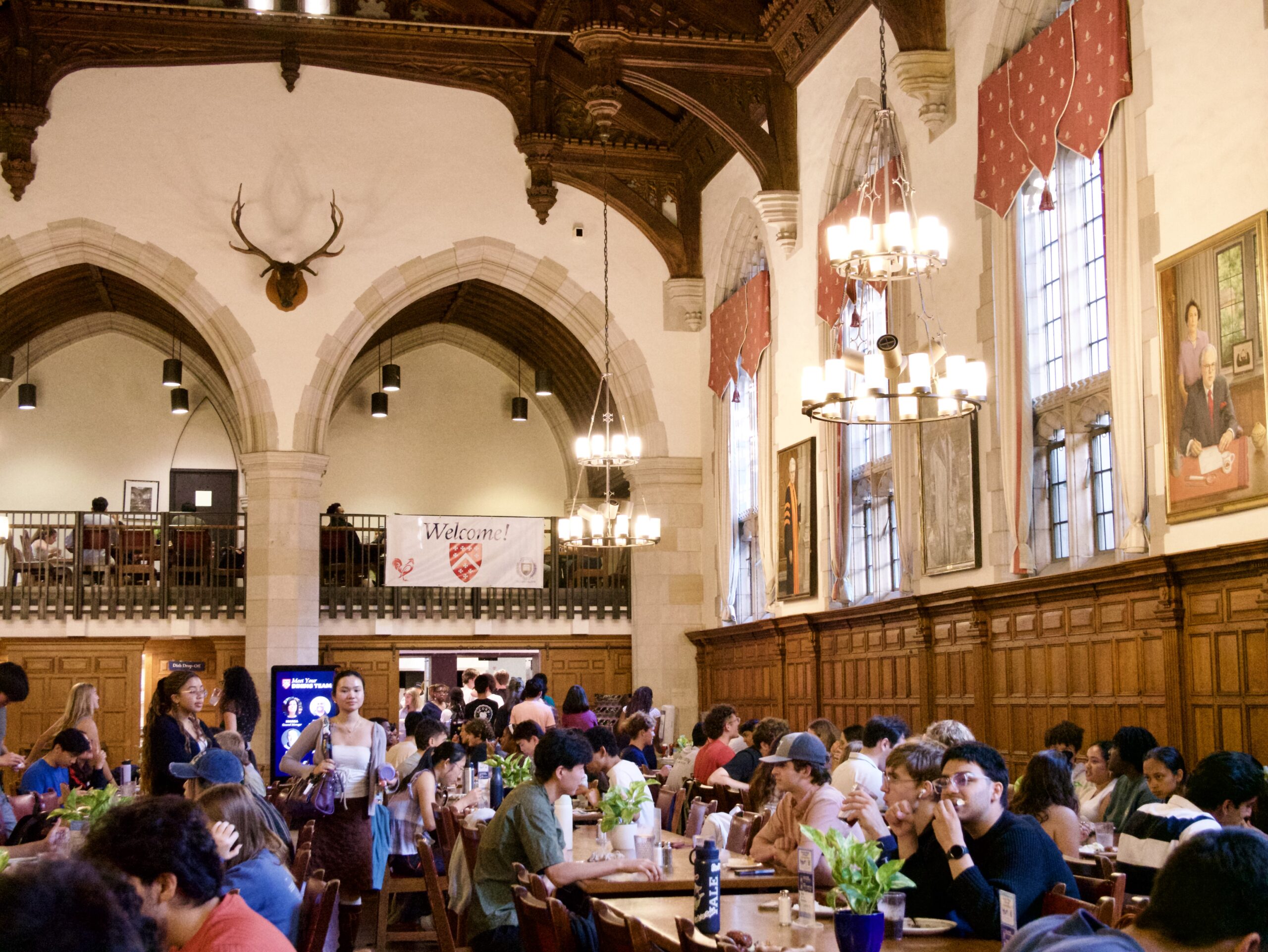
YuLin Zhen, Photography Editor
Yale’s culture, I’ve found, is at its best in the brunches. Not the lunches, those are too often squeezed in between classes, and not the dinners, those are too gcal’d to produce a relaxed atmosphere. Now, there are many places for discussion – nearly as there are students – but the weekend brunches are the most tolerant. It does not care how long you were up last night. It does not care what you did. It does not care what you wear.
I made brunches a weekly ritual at Yale, and I attended them with conviction. In the Jonathan Edwards Great Hall, I easily spent over three hours from opening to close. It went from a trickle in the beginning to the peak around noon before the crowd thinned out to a few holdouts. When I sat in the left corner, always the left corner, I eased into the day. My friends knew I would be in the dining hall when they woke up, and I knew they would arrive when they were ready. It needed no negotiation. The conversation flowed freely; it was neither held down by the judgment of an audience nor bound by time. Of the countless words we exchanged over the four years, it was mostly nonsense, but it was meaningful nonsense. The high-brow topics were put away until after the meal. A certain friend of mine always insisted on waiting until brunch when he had new gossip or a funny story to tell us. Even at the times I already knew what he was going to say, I still enjoyed his retelling because he prioritized entertainment over accuracy. Another of my brunch companions would loudly react as he heard these stories. It would be an escalating feedback loop. I am sure that Mohammed, who operates the swipes, has been subjected to hearing information he has no desire of knowing. These brunches were an outlet from the demands of student life here. We went to Yale College Council meetings, gave tours at the art gallery, managed student publications, and balanced that against our class work–or at least we tried to. Were these obligations largely self-imposed? Of course. If Yalies had no class or clubs to overbook them they would invent new ways of stressing themselves out.
We did take this outlet too far at times. It is easy to justify procrastinating when you have co-conspirators.The three hour brunch should end with doing something “productive” after. However, we punted on work through a post-brunch tea, a break from a break. By that point it would be two or three o’clock, and it would be hard to focus with dinner so close. Few spaces had that combination of frequency and low-stakes attitude. Whatever clubs or groups that I spent time in were recurring, but we had a set agenda to do. And if something was casual it would be poorly-attended, because people would focus on more pressing demands.
I, and my friends, stumbled into this routine. We never defined it, and we certainly were not the first to partake in meandering conversations at the dining hall, but we put our own spin to it. If you come to Yale, find your ‘brunch’– whatever that is. I trust that you will – eventually – figure out classes, activities, and other interests. Our campus has great backgrounds for any feeling you will experience. Truly, while I have had awful, awful days here it was at least in pretty buildings. We chronically press ourselves for time here and that is often necessary. However, if you leave here without the memories that happen over the course of unscheduled and unscripted time, you leave here at a loss.







